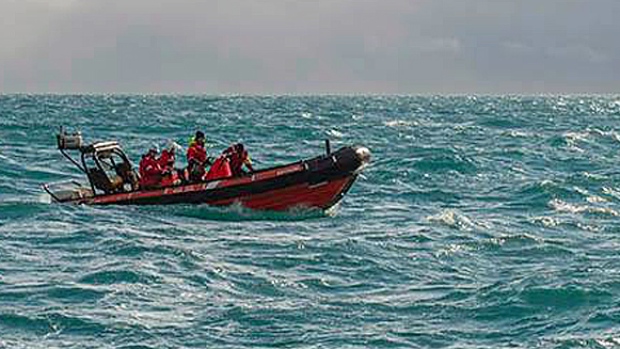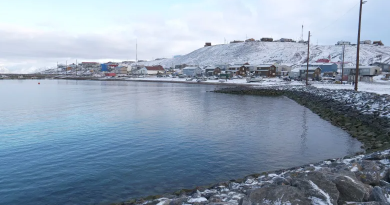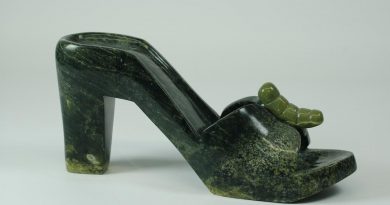Doubts raised about lead poising on Franklin expedition

Scientists at the University of Glasgow have re-examined the forensic data collected by Canadian researchers of the ice-preserved remains of three crew members from the ill-fated Franklin expedition in 1845, and concluded that lead poisoning may have played less of a role than originally thought.
This is at least the second international study to come to that conclusion.
“We’ve put a qualification on this idea that lead poisoning is what doomed the expedition,” said professor Keith Millar of the College of Medical, Veterinary and Life Sciences at the University of Glasgow. He is one of three authors of the research published in the journal Polar Record.
All 129 men and officers died on the 1845 British Franklin expedition to find the Northwest Passage after their two ships the Erebus and Terror became stuck in thick ice somewhere near King William Island.
The disappearance of the expedition made international headlines and led at the time to the world’s largest search and rescue mission.
Research by Canadian scientists on the human remains found in the 1980s suggested that the crew were suffering from lead poisoning.
The Franklin expedition was the first to use canned supplies, and there was evidence of high lead levels in the remains, possibly as a result of lead soldering in the cans.
Millar and his colleagues took a closer look at that research and statistically projected whether all the crew would have suffered from serious lead poisoning.
In particular they examined the preserved remains of three crew members found on Beechey Island as well as skeletal remains found on King William Island, Nunavut.
They concluded that while some might have been sick, others were not.
Other evidence

“What is absolutely clear is many of them had high levels of lead,” said Millar in an interview from Glasgow. “What is less clear is if that was unusual given their background in highly lead-polluted Britain. And the variation across the men that we’ve estimated shows they may not have been affected at all.”
Millar says there is other evidence that raises questions about how the men died. The few written records that remain show the first two years of the Franklin expedition were going well, with the crew doing extensive exploration on land and building winter camps. Millar says that wouldn’t be possible if they were suffering from lead poisoning, which can can cause psychological and neurological damage.
Instead, he thinks it was a combination of factors, including bad luck. The expedition was in the Arctic during a five-year period when the sea ice didn’t melt in the summer.
“So it was the cold and lack of preparation that did for them, rather than the idea they were all made terribly ill by lead and were incapable of functioning,” he said.
Canadian anthropologist Robert Park from the University of Waterloo says this newest research shows the real reason for the expedition’s failure “is a lot more complicated than the simple explanation of lead.”
Park is part of a team assisting the government of Nunavut in its search for the remains of the Franklin expedition. A Parks Canada team has also been conducting an underwater search for the lost ships these past two summers.
Park says there have been ongoing questions about the toxic lead theory for decades, even by the original researchers who posed it. And there’s the fact that other British expeditions spent years in the Arctic without catastrophic loss of life.
He thinks all this just makes the unsolved mystery that much more compelling. “There is something marvellously catastrophic about the Franklin expedition,” said Park.
Related Links:
Canada: Franklin search: Relatives hope for answers in Arctic mystery, CBC News



